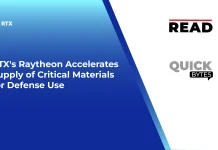Vista.ai, a pioneer and leader in automated MRI solutions, announced results from a clinical adaptation study on the company’s One Click MRI™ software, led by Dr. Raymond Kwong, Director, Cardiac Magnetic Resonance Imaging for Harvard-affiliated Brigham and Women’s Hospital. The findings show that Vista.ai’s AI-guided image acquisition software improves cardiac MRI (CMR) scan times and achieves high adoption rates by hospital imaging staff. Dr. Kwong will discuss the learnings and implications of the study at an interactive breakfast symposium at 7:20 a.m. at the SCMR Scientific Sessions in San Diego.
Dr. Kwong evaluated the use of One Click MRI across approximately 1,100 consecutive studies for cardiomyopathy and structural heart disease, comparing traditional CMR exams against both partial and full AI-assisted scans from April to September 2022.
Also Read: Biomerics Completes Connecticut Expansion
With respect to CMR exam time, Dr. Kwong’s study found that:
- Full AI-assisted scans – where a technologist uses One Click MRI to oversee the exam with no manual operation – were 31% shorter than non-AI scans.
- 90% of full AI-assisted scans were completed within 45 minutes, while only 25% of unassisted scans were completed within that timeframe.
- Full AI-assisted scan times were threefold more consistent than unassisted scan times. Both had minimum times of 26 to 27 minutes; however, maximum times were 64 minutes versus 161 minutes, respectively.
Failed adoption of other promising technologies in the medical field has spotlighted the critical importance of gaining support of frontline workers. Notably, Dr. Kwong’s study found that voluntary use of One Click MRI steadily grew as technologists witnessed the software’s ease of use and benefits firsthand. Technologist adoption increased from 13% during the first full month One Click MRI was available to 55% at the end of the study.
An influx of patients with COVID-19-induced cardiac issues further strained the operation of our CMR program at Brigham. Before initiating the One Click MRI study, some outpatients were waiting up to three to four weeks for a CMR scan. Even our sickest inpatients would often have to wait two to five days for a scan,” Dr. Kwong said. “We believe that with continued use of One Click MRI, we will further reduce scan times to an average of 30 minutes, shrink the backlog to improve upon pre-pandemic levels, and sustain a CMR growth rate of about 15% a year.”
SOURCE: PRNewswire



